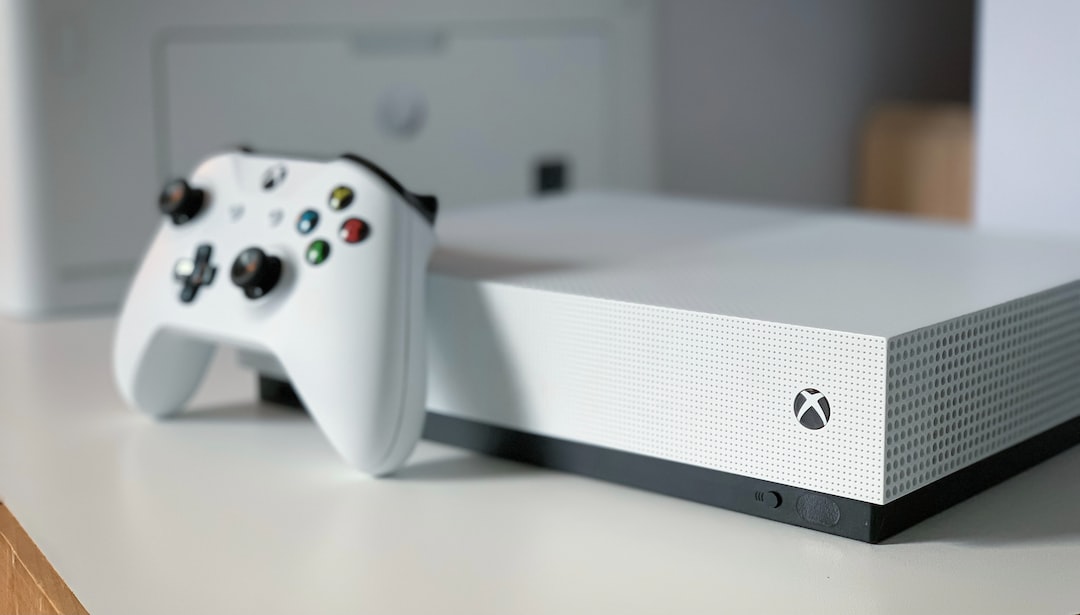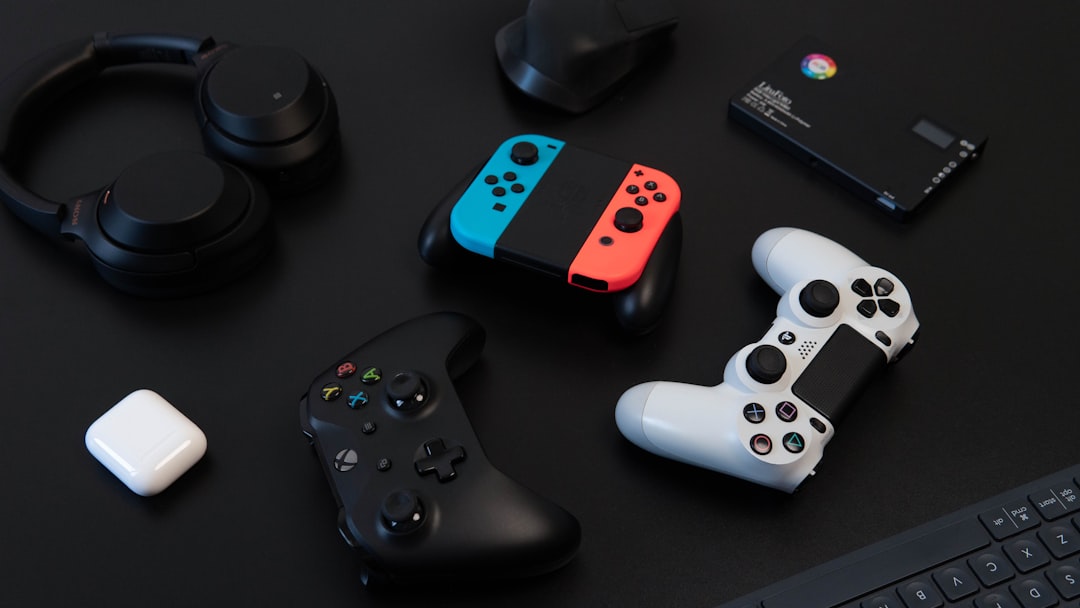The gaming industry is one of the most exciting and rapidly evolving industries in the world, with a market size of over $150 billion. A significant factor driving this growth is the rapid advancement of technology, which has led to new gaming platforms, devices, and immersive experiences. Over the years, we have seen how technologies such as augmented/virtual reality and cloud gaming have fundamentally transformed the way we play and interact with games.
One technology that is currently making waves in the gaming industry is blockchain technology. Blockchain is a decentralized, immutable, and transparent digital ledger that enables secure and transparent transactions without the need for intermediaries. This revolutionary technology is now beginning to impact the gaming industry in a significant way, with the potential to revolutionize the way gamers play, interact, and transact with games.
In this blog post, we will explore the impact of blockchain on the gaming industry in detail. We will delve into how blockchain technology is helping to ensure fair play, prevent fraud and cheating, enable secure and transparent in-game transactions, and even facilitate the ownership and trade of virtual game assets. We will also look at how blockchain-based platforms are enabling decentralized gaming and social interaction.
As we go through this journey, it is essential to note that while the gaming industry is still in the early stages of blockchain adoption, the potential benefits are vast. So, let’s dive in and explore the fascinating world of blockchain and how it is reshaping the future of gaming.
Leveling up: Using blockchain to ensure fair play and prevent cheating in online games
As online gaming continues to grow exponentially, the issue of cheating and unfair play has become a major concern for both players and game developers. Traditional methods of preventing cheating, such as kernel-level anti-cheat systems, have proven to be increasingly ineffective. This is where blockchain technology comes in.
By utilizing blockchain, game developers can create a secure and decentralized platform that ensures fair play and prevents cheating. Blockchain technology is built on the principles of transparency, immutability, and decentralization. This means that every transaction is recorded on a transparent and immutable ledger that cannot be altered or deleted by any one entity.
In an online gaming context, this means that all transactions and actions taken by players are recorded on a blockchain. This includes things like movement, in-game purchases, and kills. This data can be analyzed in real-time to detect and prevent cheating.
One way that blockchain can be used to prevent cheating is through the creation of non-fungible tokens (NFTs). An NFT is a unique digital asset that can represent anything from a virtual weapon to a character skin. By tokenizing in-game assets, game developers can ensure that they are owned by individual players and cannot be duplicated or replicated. This means that cheaters cannot duplicate in-game assets or artificially boost their game account.
Another way that blockchain can be used to prevent cheating is through the creation of smart contracts. Smart contracts are self-executing contracts that automatically execute when certain conditions are met. In an online gaming context, smart contracts could be used to ensure that all players are playing by the same rules. For example, a smart contract could be set up to ensure that all players are using the same version of the game, preventing any unfair advantages.
In addition to preventing cheating, blockchain can also be used to create a more fair and transparent gaming economy. By using blockchain, game developers can create a secure and transparent platform for in-game transactions. This means that players can buy and sell in-game items with confidence, knowing that the transaction is secure and the item they are buying is authentic.
In conclusion, blockchain technology has the potential to revolutionize the gaming industry by ensuring fair play, preventing cheating, and creating a more transparent gaming economy. As blockchain technology continues to evolve, we can expect to see more and more game developers adopting it as a way to create a better gaming experience for players.
As blockchain technology continues to evolve, we can expect to see more and more game developers adopting it as a way to create a better gaming experience for players.
A gamer’s economy: Utilizing blockchain to create secure and transparent in-game transactions
The world of gaming is constantly evolving, and as it continues to grow, so does the need for a safe, secure, and transparent way to conduct in-game transactions. This is where blockchain technology comes in, offering a decentralized platform that facilitates peer-to-peer transactions with unmatched security, transparency, and efficiency.
With blockchain technology, gamers can now enjoy an economy that operates on a fair and transparent playing field, without the risk of fraud or manipulation. As blockchain provides an immutable record of transactions that cannot be tampered with, gamers can be assured that their assets are safe and secure.
By implementing blockchain into the gaming industry, game developers can create secure digital marketplaces that enable gamers to buy, sell, and trade in-game assets with ease. These digital transactions can be executed instantly, without the need for a middleman, which not only saves time but also reduces transaction costs.
The use of blockchain-powered smart contracts also enables developers to build complex gaming ecosystems with dynamic rules and regulations that can be fully automated. For gamers, this means transactions can be executed seamlessly, unlocking new opportunities for buying, selling and trading digital goods.
Additionally, blockchain technology can facilitate new revenue models for game developers by enabling them to monetize their virtual assets beyond the initial sale of the game. Through tokenization of in-game assets, developers can create new revenue streams by selling in-game assets to players, who can then use these assets to trade, sell and even earn revenue themselves.
In conclusion, blockchain technology is poised to revolutionize the gaming industry, providing a secure and transparent platform for online transactions, increasing the value of in-game assets and opening up new revenue streams for game developers. As gaming continues to grow, so too will the need for a safe, secure, and efficient ecosystem for in-game transactions, and blockchain is poised to be the solution that gamers and developers alike have been searching for.
In conclusion, blockchain technology is poised to revolutionize the gaming industry, providing a secure and transparent platform for online transactions, increasing the value of in-game assets and opening up new revenue streams for game developers.
Tokenizing game assets: How blockchain is enabling ownership and trade of virtual assets
The emergence of blockchain technology has revolutionized not just the gaming industry, but multiple other sectors as well. This innovative technology offers a wide range of applications, however, one of the most exciting is tokenizing game assets. By leveraging blockchain technology, game developers can convert in-game assets like characters, weapons, and other virtual artifacts into unique tokens that can be owned and traded by players.
This concept of tokenization has the potential to transform the way we think about the gaming economy. Traditionally, gaming companies retain ownership of in-game items, and players have no rights to take those items outside of the game. But with blockchain technology, items can be tokenized and owned by players, allowing them to sell and trade these assets in a decentralized marketplace.
Tokenization of game assets brings a new level of ownership and value to in-game items. It permits players to monetize their gaming experience while providing them with full control over their virtual items. It’s a win-win situation for both gaming companies and players.
Blockchain technology enables secure and transparent transactions that are recorded in an immutable decentralized ledger, making it impossible to alter, overwrite, or delete. It eliminates the risk of fraud, which is a significant concern in the gaming industry. Additionally, the use of smart contracts can automate the trading process, allowing all transactions to be completed within the blockchain.
Another exciting aspect of tokenization is the ability to bridge the gap between different games, which did not exist previously. With tokenized game assets, players can integrate in-game items across different games using a blockchain-based platform.
In summary, tokenizing game assets opens up new possibilities for the gaming industry. It provides players with full ownership and control of in-game items, improves transparency and security, and allows for decentralized trading. The gaming industry is just beginning to scratch the surface with blockchain technology. It has the potential to further transform how we think about the gaming economy and radically disrupt traditional business models.
Traditionally, gaming companies retain ownership of in-game items, and players have no rights to take those items outside of the game.
Building Community: Blockchain-Based Platforms for Decentralized Gaming and Social Interaction
The gaming industry has long been centered around creating communities where players can interact with each other while playing games or discussing them online. In recent years, the increasing adoption of blockchain technology has enabled the creation of decentralized gaming and social platforms that allow for more secure and transparent interactions between players, as well as more opportunities for monetization.
One example of such a platform is BitGuild, a blockchain-based gaming platform that allows players to earn and trade virtual items and currency without fear of fraud. The platform was developed using blockchain technology, which provides secure and transparent transactions through the use of a decentralized ledger. Blockchain technology also ensures that all transactions on the platform are tamper-proof, making it impossible for anyone to cheat in the system.
Another example of a blockchain-based gaming platform is Enjin, which utilizes blockchain technology to power its social platform for gamers. The Enjin platform provides a secure communication channel for gamers to interact with each other, as well as a marketplace for buying and selling game-related digital assets. This allows gamers to trade game assets with each other without the risk of fraud or hacking.
In addition, blockchain-based platforms are also facilitating the creation of new gaming communities, such as those focused on virtual reality or esports. For example, the VR platform, Decentraland, allows users to create and trade custom VR experiences, while the esports platform, Unikrn, utilizes blockchain technology to allow users to bet on the outcomes of esports tournaments.
Overall, decentralized gaming and social platforms based on blockchain technology are revolutionizing the gaming industry by providing more opportunities for monetization, more secure transactions, and more transparent interactions between players. As blockchain technology continues to evolve, we can expect more innovative platforms to emerge that will reshape the future of gaming as we know it.
Blockchain technology also ensures that all transactions on the platform are tamper-proof, making it impossible for anyone to cheat in the system.
Conclusion: How Blockchain is Reshaping the Future of Gaming
Blockchain technology has provided a new dimension of transparency, security and assurance in the gaming industry. From the prevention of fraudulent activities to the creation of fair and transparent in-game economies, blockchain has revolutionized the way gamers interact with each other and developers, as well as how games are played and experienced.
As fair play and honest competition are core values in the gaming world, blockchain provides a new level of assurance for gamers. No longer do they need to worry about unfair practices or cheating. The use of blockchain ensures that all transactions and game actions are transparent and immutable, providing gamers with a level of trust that was previously impossible.
Furthermore, the economic aspects of gaming have been revolutionized by blockchain technology. In-game transactions are now secure, quick, and tamper-proof. With decentralized platforms and blockchain-based currency, gamers have more control over their earnings and can interact with each other without the need for intermediaries.
Another significant aspect of blockchain technology involves the tokenization of game assets, which has enabled virtual assets to be owned and traded, creating new opportunities for gamers to customize their gaming experiences. The use of blockchain technology has ensured that these assets are secure, and their values are transparent.
Lastly, blockchain-based platforms have created new opportunities for gamers to connect with each other in a decentralized and secure way. From decentralized social gaming platforms to the creation of new games altogether, the possibilities with blockchain technology are endless.
In conclusion, blockchain technology is drastically reshaping the gaming industry. From preventing fraud, creating fair and transparent economies, enabling virtual asset ownership, and providing new ways for gamers to connect, blockchain is bringing a new era of trust, transparency, and security to gaming.
As fair play and honest competition are core values in the gaming world, blockchain provides a new level of assurance for gamers.
7. Looking to the Future: The Promise of Blockchain in the Gaming Industry
As we’ve discussed in the previous six sections, blockchain technology has already made a significant impact on the gaming industry. It has helped to prevent cheating, enable secure and transparent transactions, tokenize assets, and build communities of gamers all around the world.
But these are just the first steps. The promise of blockchain in the gaming industry extends far beyond what we’ve seen so far. In fact, some experts predict that blockchain technology will completely revolutionize the way we play and interact with games.
One of the most exciting possibilities for blockchain and gaming is the idea of cross-game interoperability. This means that players will be able to transfer their assets or progress seamlessly between different games, regardless of the platform or developer. In other words, you could earn a rare item in one game and use it in another, or carry over your level and experience between games.
Another promising application for blockchain in gaming is the concept of player-owned economies. In traditional games, developers have complete control over the economy and the value of in-game items. However, with blockchain, players can truly own their assets and have control over their value. This opens up a whole new world of possibilities for gamers, including the ability to make a living through gaming.
Furthermore, as blockchain technology becomes more ubiquitous and easy to use, we may see an explosion of decentralized game development. This means that instead of relying on big game studios to produce games, anyone with a creative idea could create and distribute their own game on a decentralized platform. This would lower the barrier to entry for aspiring game developers and allow for a wider variety of games to be available to players.
Conclusion
Blockchain technology has already made a significant impact on the gaming industry, but its potential extends far beyond what we’ve seen so far. As the technology continues to evolve, we can expect to see even more exciting developments that will completely reshape the way we play and interact with games. It’s an exciting time to be a gamer, and we can’t wait to see where blockchain takes us next.





